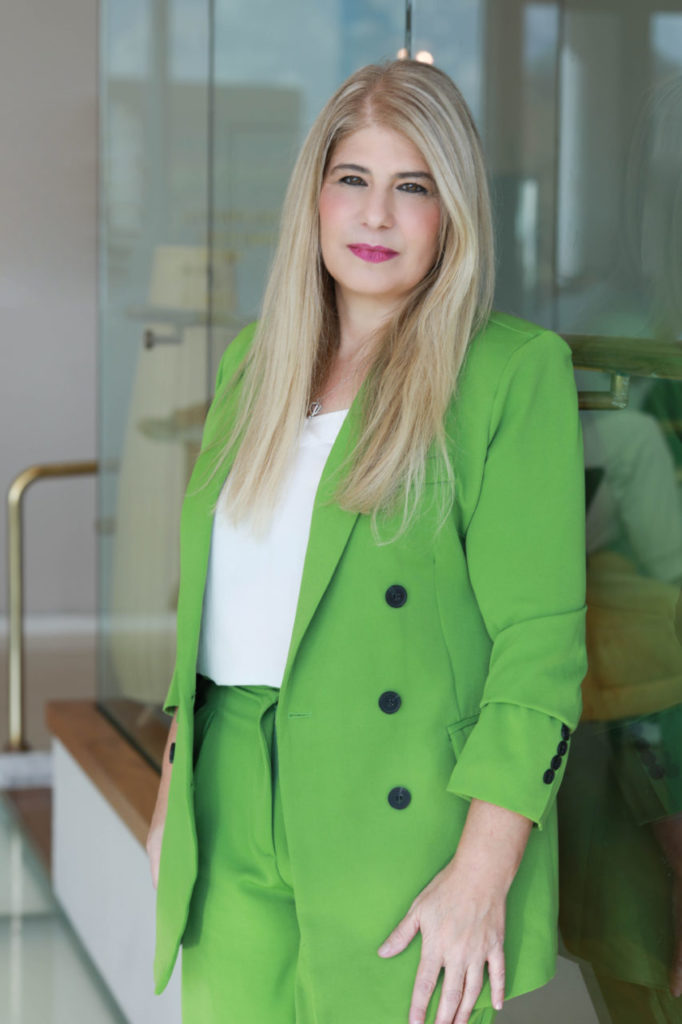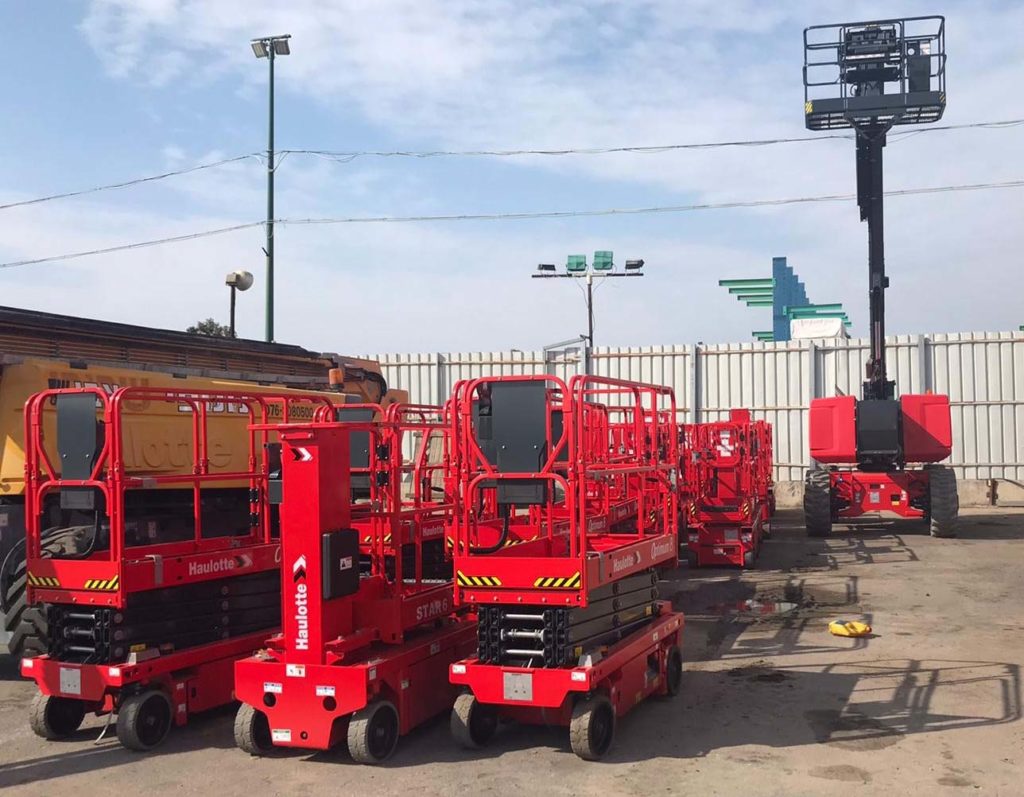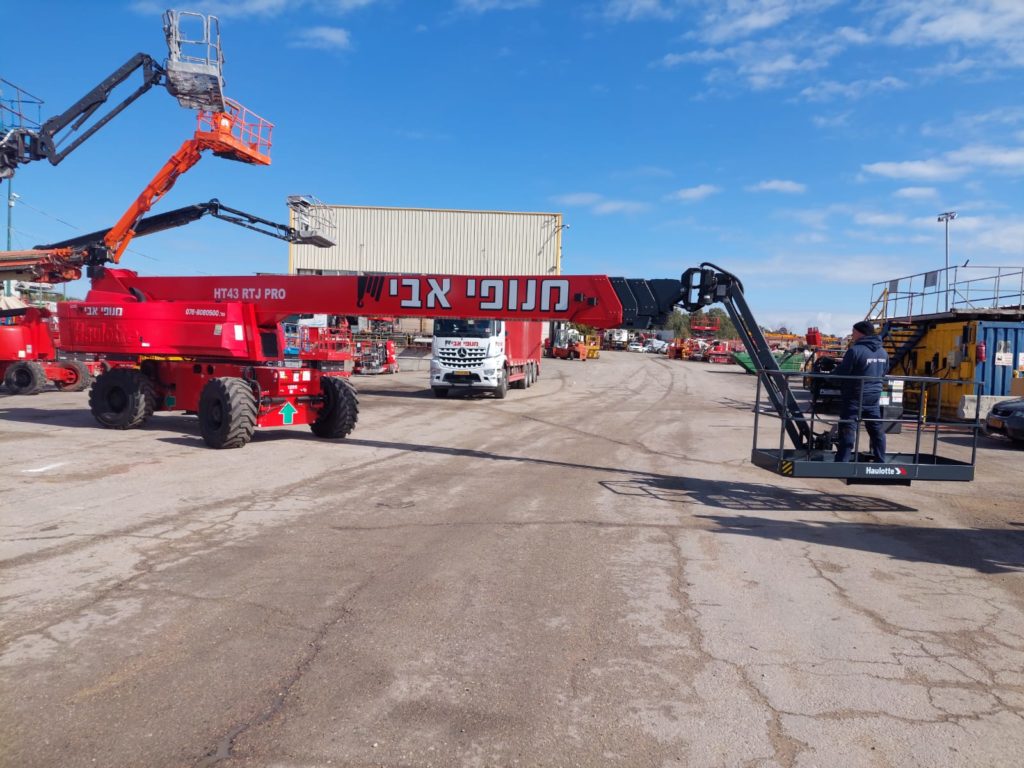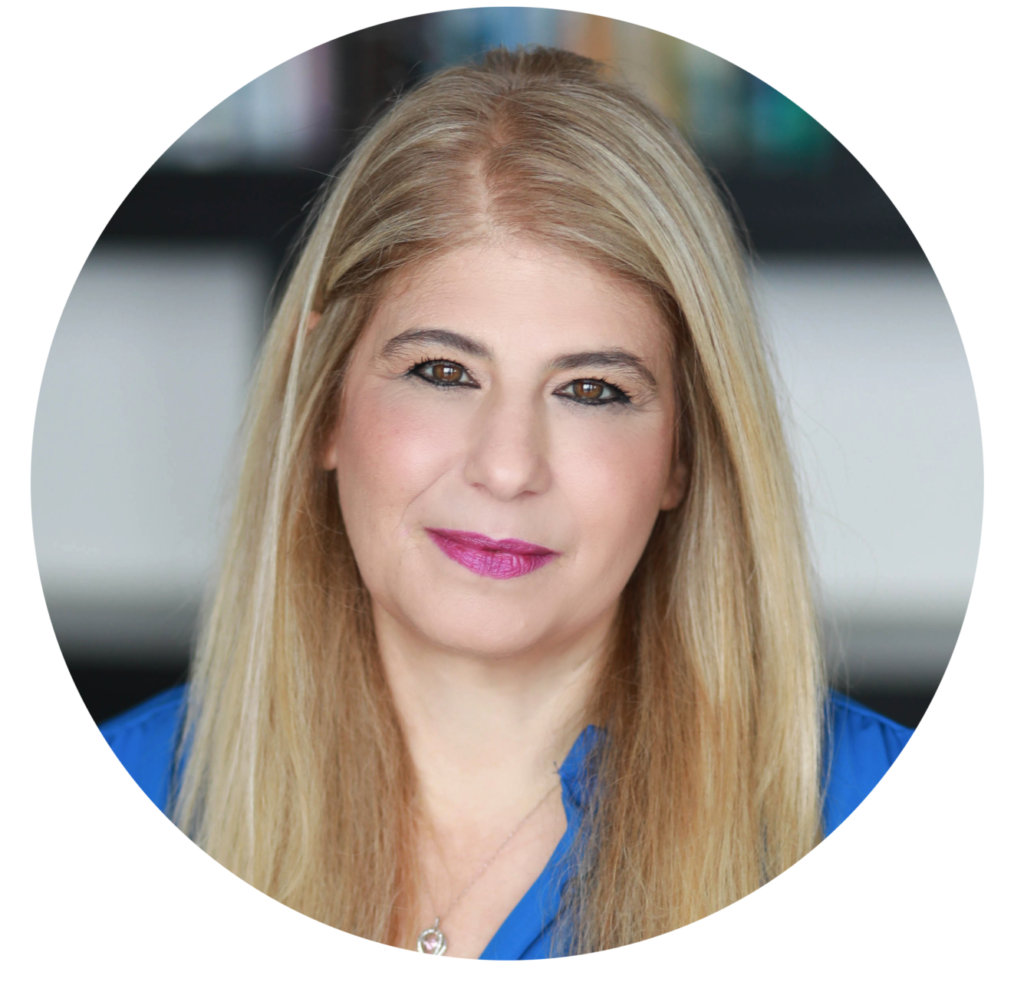Hila Yochanan is AVI CRANES’ co-CEO, an Israeli rental company specialized in aerial work platforms, cranes and heavy transport. This family business was founded in 1970 by Avi Yochanan, Hila’s father.
Since then, AVI CRANES has successfully developed itself, becoming the national leader in equipment rental. Nowadays, the company employs more than 500 persons spread across different branches and divisions. Haulotte is its official supplier for aerial work platforms. Hila Yochanan shared her own success story with us, from her career path to her ambitions and her future projects.
A portrait of a hard-working woman and mother of four who is dedicated to her father’s company.

Can you tell us a bit more about yourself and your role within AVI CRANES?
I am the co-CEO of AVI CRANES, also an active member of the company’s board and the head of the aerial work platforms division – a division I created from scratch 25 years ago.
At the time, there was a real lack of awareness for this type of solution in Israel, and we were the first to offer it.
We started with a 120 aerial work platform fleet in 1997, slowly growing over the years. In 2021, we acquired a company which specialized in this field in Beer-Sheva, in the south of the country.
We now have a 2,000 aerial work platform fleet.
How did you start your professional career?
I spent my entire career at AVI CRANES. I started working when I was 12 years old, helping here and there whenever I had the chance to. When I turned 17, I switched to a full-time position while studying. I studied management at the Tel Aviv University and did the Kellogg Recanati International MBA program.
How important is family to AVI CRANES?
AVI CRANES is a true family business.
My father founded it back in the 70s after his military service. He is now the president of the group.
My cousin on my mother’s side has also joined the business co-CEO, he runs the crane and transportation division.
My brother is in charge of the real estate side of things.
My oldest son joined us about two years ago and has since then been overseeing the truck-mounted aerial work platforms.
Despite the size of the company, we made sure it remained a friendly and family-oriented place. It is very important to us that it does.
We care a lot about our teams’ well-being. Most of our employees have been with us for 15-20 years, if not more.
By the way, as a family business, do you take special measures in terms of safety? It is a real issue in Israel.
For us, employee safety is not just a catchphrase. It is an issue we take very seriously. We have four safety specialists on site who are consistently available to help operators and customers. We also offer numerous training courses.
We attend annual safety conferences, learn from incidents, ensure proper use of
machines, and most importantly, make sure our employees are well equipped and that their equipment is compliant.

Any big projects AVI CRANES has been involved in recently?
For the past two years, we have been working on wind turbine parks in Golan Heights. It is a huge construction site.
We have purchased two giant DEMAG CC3800 cranes and transport equipment for the project as we needed to deliver 70-meter-long turbine wings. Our missions include transportation and assembly.
These days we are wrapping up the construction of the third turbine park in northern Israel, about 100 turbines in total. We are getting ready for the new project that will start in a few months.
Another major project we are working on now is the expansion of the Intel factory in Kiryat Gat. This is a five-year project that involves cranes of various sizes and numerous lifting platforms. It’s a complex project that requires us to have a lot of our machines on one site. Every day, about 40 cranes are operating 24/7, with about 100 aerial platforms, and 80 employees and it might increase depending on the project’s progress.

On a daily basis, what do you find the most challenging and rewarding?
The hardest part is having to act like a kindergarten teacher (laughs), dealing with day-to-day bickering between employees.
The most satisfying, and rewarding part is the development: optimizing processes, improving them, solving problems, getting to a situation where we work more smoothly, and getting all the interfaces to cooperate.
We are very proud of what we achieve every day. But like any business, there are busier and more critical times with the challenges and emergencies that go with it.
Would you say "preconceived ideas" if I was telling you that it could be difficult to balance work and personal life?
I believe that the real challenge is to find the right balance between your work and private life. Defining your priorities and sticking to them. There are times when I need to spend more time at work and my kids understand that.
It’s also a question of education and professional ethics. My family understands that my work is important to me and that it brings me great happiness. Sometimes, the kids need me more, so I have to be there for them.
It’s very easy to get caught up in work and in the moment, but at the same time, I know how to slow down when it’s needed and take time for myself too.
Is it a preconceived idea to say that women are better business managers than men? Do you have to work harder to prove your leadership skills?
I don’t want to generalize and say that women are better than men, nor do I want to say the opposite. It depends on everyone’s personality it’s not gender related. What is true though, is that women bring a different approach,
usually with less ego and more empathy.
I also see it in my company where employees feel that they can talk to me,
and I try to help them whenever I can (professionally or personally).
In terms of leadership, I have often felt that I had to prove myself to both my employees and my father.

It is often said that women managers have a more participative management style than men, in your opinion, "myth or reality"?
Over the years, I learned that I don’t need to understand everything technically (engines, mechanics…), but
as a manager I need to have people around me whom I can trust, whom I can consult to make the right decisions. I try to create an environment that is propitious to exchanges.
Are women leaders less tender with their peers?
I think that for some reason I am pickier with women. I expect from them what I expect from myself.
There’s this projection that happens without me even realizing it.
Any advice for young women who want to start a business? And a mantra?
If they really want to work in a certain field, then anything is possible. Willingness, perseverance and hard work are a must.